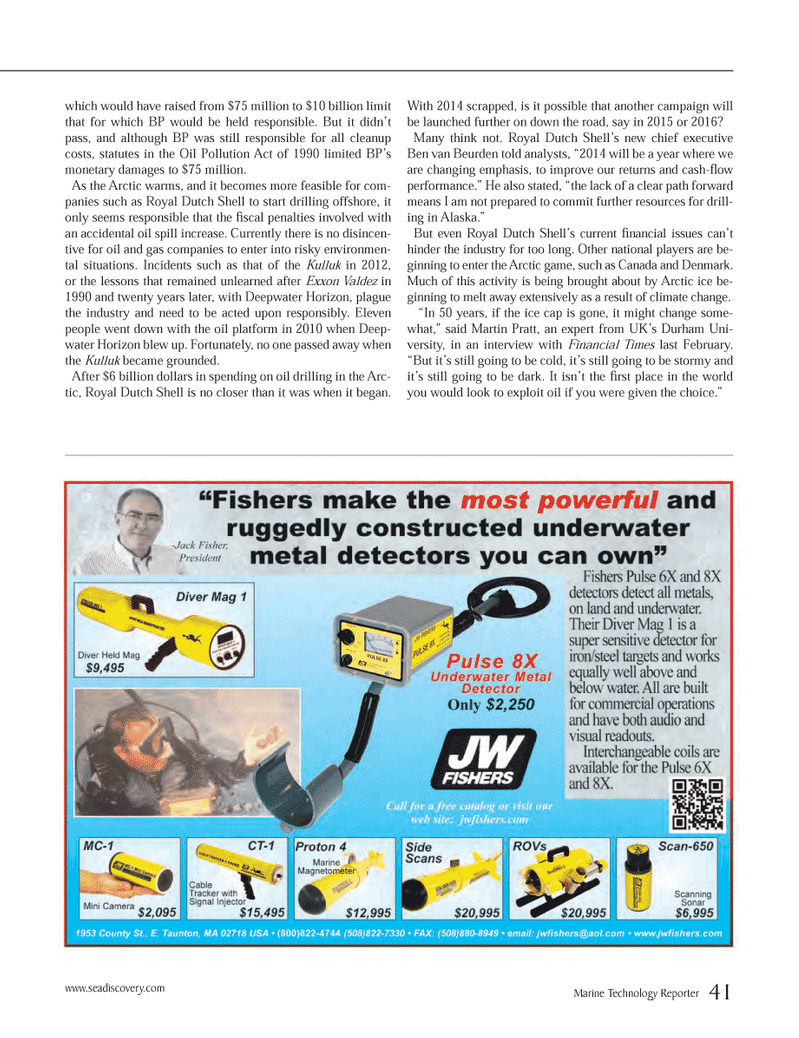
Page 41: of Marine Technology Magazine (April 2014)
Offshore Energy
Read this page in Pdf, Flash or Html5 edition of April 2014 Marine Technology Magazine
which would have raised from $75 million to $10 billion limit that for which BP would be held responsible. But it didn’t pass, and although BP was still responsible for all cleanup costs, statutes in the Oil Pollution Act of 1990 limited BP’s monetary damages to $75 million.
As the Arctic warms, and it becomes more feasible for com- panies such as Royal Dutch Shell to start drilling offshore, it only seems responsible that the fi scal penalties involved with an accidental oil spill increase. Currently there is no disincen- tive for oil and gas companies to enter into risky environmen- tal situations. Incidents such as that of the Kulluk in 2012, or the lessons that remained unlearned after Exxon Valdez in 1990 and twenty years later, with Deepwater Horizon, plague the industry and need to be acted upon responsibly. Eleven people went down with the oil platform in 2010 when Deep- water Horizon blew up. Fortunately, no one passed away when the Kulluk became grounded.
After $6 billion dollars in spending on oil drilling in the Arc- tic, Royal Dutch Shell is no closer than it was when it began.
With 2014 scrapped, is it possible that another campaign will be launched further on down the road, say in 2015 or 2016?
Many think not. Royal Dutch Shell’s new chief executive
Ben van Beurden told analysts, “2014 will be a year where we are changing emphasis, to improve our returns and cash-fl ow performance.” He also stated, “the lack of a clear path forward means I am not prepared to commit further resources for drill- ing in Alaska.”
But even Royal Dutch Shell’s current fi nancial issues can’t hinder the industry for too long. Other national players are be- ginning to enter the Arctic game, such as Canada and Denmark.
Much of this activity is being brought about by Arctic ice be- ginning to melt away extensively as a result of climate change. “In 50 years, if the ice cap is gone, it might change some- what,” said Martin Pratt, an expert from UK’s Durham Uni- versity, in an interview with Financial Times last February. “But it’s still going to be cold, it’s still going to be stormy and it’s still going to be dark. It isn’t the fi rst place in the world you would look to exploit oil if you were given the choice.” www.seadiscovery.com
Marine Technology Reporter 41
MTR #3 (34-49).indd 41 4/9/2014 10:57:55 AM

 40
40

 42
42
